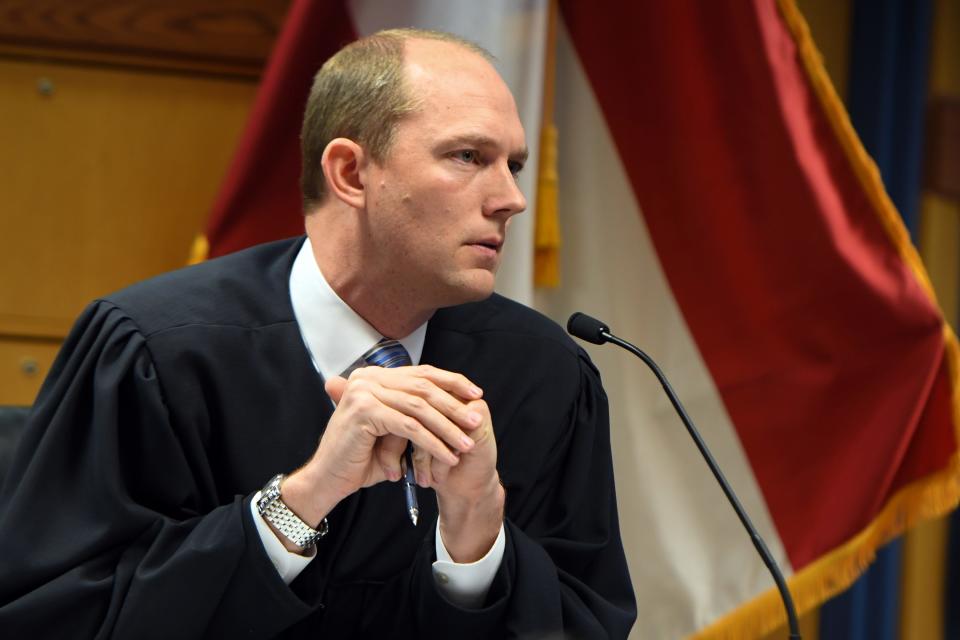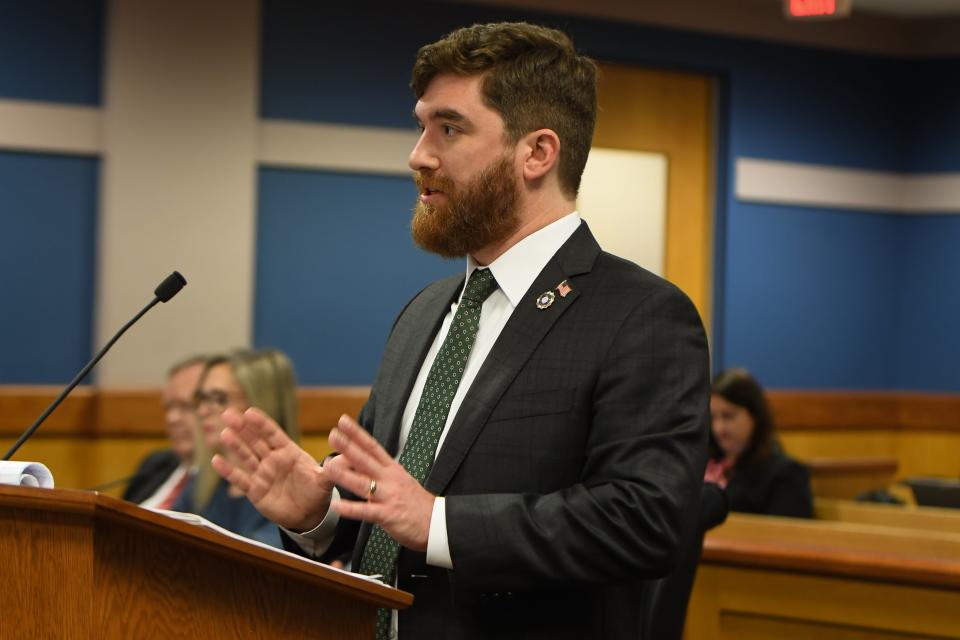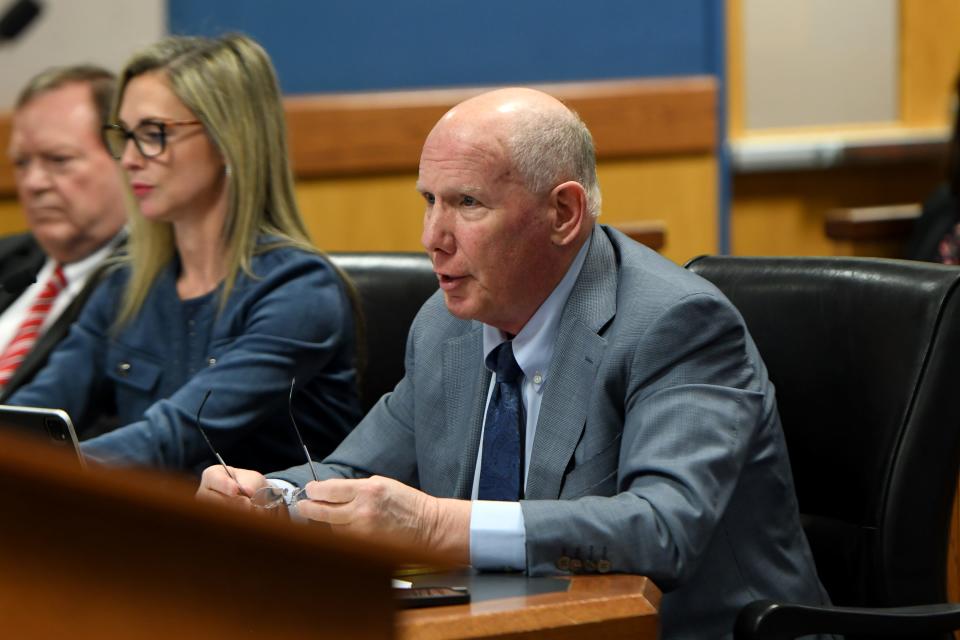Donald Trump's lawyer in Georgia: election lies are protected speech
- Oops!Something went wrong.Please try again later.
- Oops!Something went wrong.Please try again later.
Donald Trump’s lawyer argued Thursday the former president can’t be prosecuted in Georgia for trying to steal the 2020 election because his alleged conduct was political speech that must be protected under the First Amendment − even speech that was lies.
“Falsity alone is not enough,” Trump's lawyer, Steven Sadow, said. “Clearly, being president at the time, dealing with elections and campaigning, calling into question what had occurred – that’s the height of political speech.”
Sadow urged Fulton County Superior Judge Scott McAfee to dismiss the charges against Trump because they are based on his statements questioning the election results and pressuring state officials to overturn them.
“It’s the speech that’s being punished,” Sadow said. “Take out the political speech, no charges.”
McAfee didn’t rule immediately on the request. But he sounded skeptical that he could make any decision about whether the First Amendment protected Trump before holding the trial.

Prosecutors argued Trump’s statements contributed to a wide-ranging conspiracy of making false statements to government officials, submitting false and forged documents and impersonating public officials. Trump asked Georgia Secretary of State Brad Raffensperger, a fellow Republican, to "find" the votes he would need to carry the Peach State.
“It’s not just that he lied over and over and over again,” said prosecutor Donald Wakeford. “It’s that each of those was employed as part of criminal activity with criminal intentions.”
U.S. District Judge Tanya Chutkan has already rejected Trump’s argument that his statements are protected by the First Amendment, in a federal case with similar charges of election interference. Wakeford directed McAfee to her reasoning for a detailed explanation for why Trump is wrong.
“It’s not a basis for dismissing the indictment,” Wakeford added.
Trump and 14 co-defendants have pleaded not guilty to election racketeering. Four defendants have pleaded guilty. McAfee hasn’t scheduled the trial yet but prosecutors have proposed starting in August.

Co-defendant Shafer argues Georgia had no legitimate presidential electors in 2020
Another defendant, David Shafer, who is chairman of the Georgia Republican Party, also sought to dismiss his charges Thursday. His lawyer, Craig Gillen, also asked to erase phrasing in the indictment describing Shafer as a “fake” presidential elector.
Shafer and two others are charged with impersonating public officials and forgery for meeting Dec. 14, 2020, and submitting paperwork as if they were Republican presidential electors for Trump. President Joe Biden narrowly won the state and Congress recognized his Democratic electors as legitimate.
Gillen argued that no electors – neither Republicans nor Democrats – should have been recognized because a Trump and Shafer lawsuit challenging the results was still pending Dec. 14, 2020.
“There were no duly elected and qualified presidential electors from the state of Georgia,” Gillen said.
Georgia Gov. Brian Kemp certified the election results and the electors, which Congress accepted.

Shafer, state GOP chair, objects to being called 'fake elector'
Gillen also complained about prosecutors calling Shafer and others “fake electors” and argued the phrase should be removed from the indictment.
“It’s a pejorative statement,” Gillen said.
Will Wooten, another prosecutor, said the term “fake elector” doesn’t appear in the indictment, which does refer to as “unlawful” or “false Electoral College documents.”
This article originally appeared on USA TODAY: Trump: First Amendment protects efforts to overturn election

